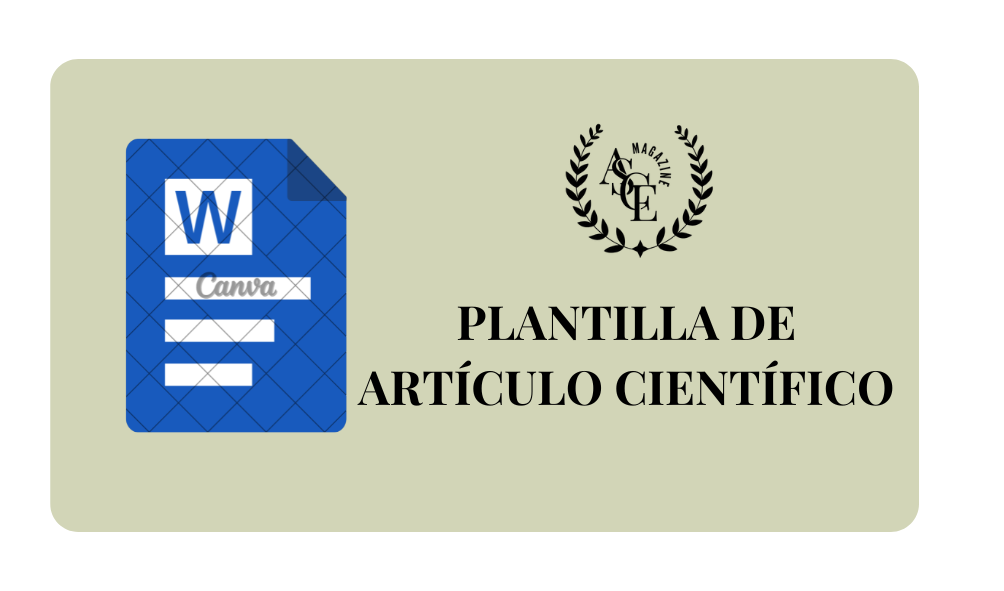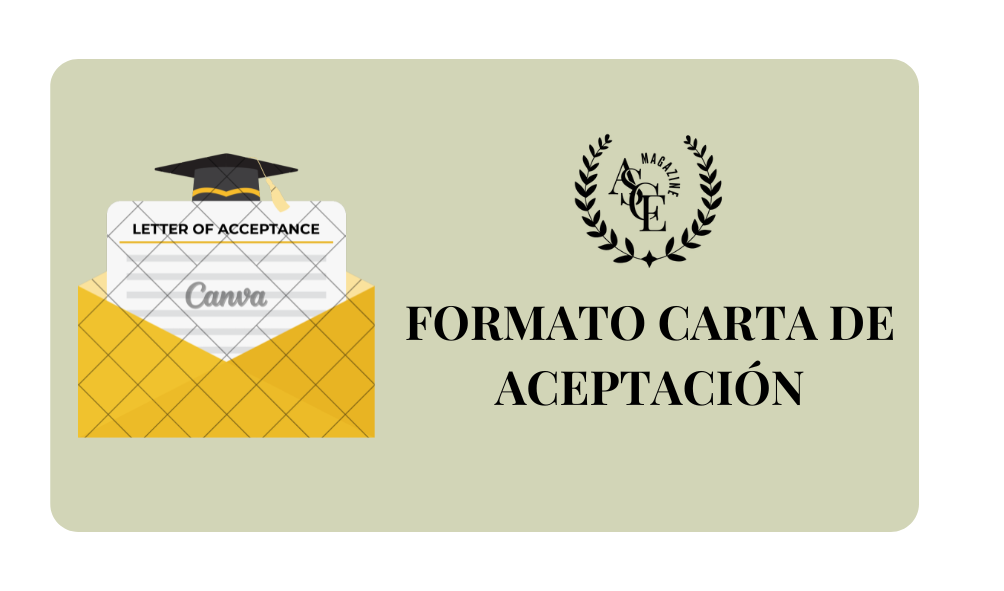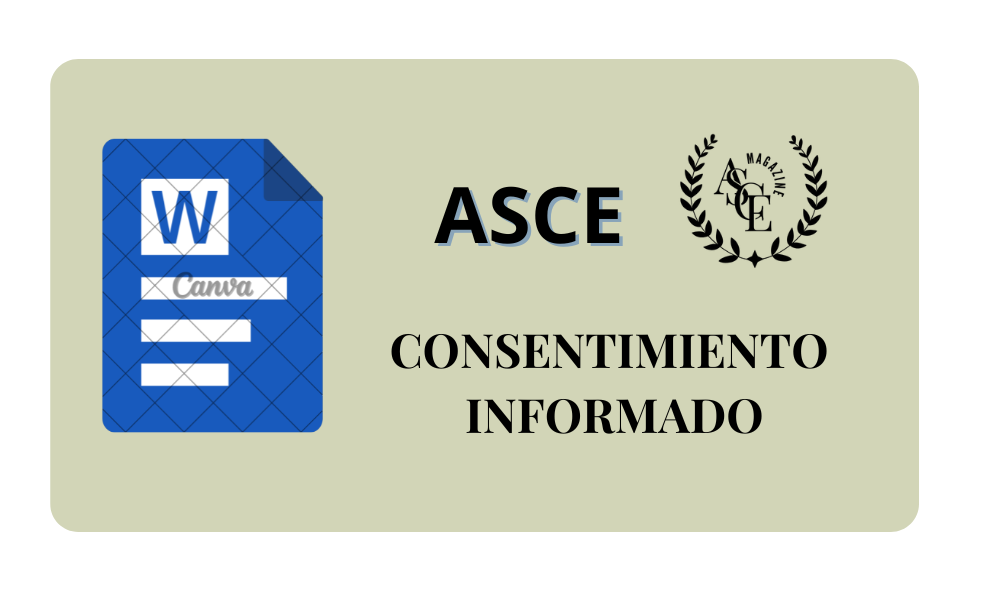Application of Problem-Based Learning (PBL) to Improve the Understanding of Differential Calculus Concepts in Higher Education Students.
DOI:
https://doi.org/10.70577/ASCE/1691.1713/2025Keywords:
Problem-Based Learning, Differential Calculus, Higher Education, Pedagogical Innovation, Mathematical Skills.Abstract
This study sought to evaluate the efficacy of Problem-Based Learning (PBL) in improving students' comprehension of differential calculus principles in higher education. Based on the premise that Project-Based Learning (PBL), by centering students in the educational process and promoting collaborative problem-solving in authentic contexts, constitutes an effective pedagogical approach, the research aimed to tackle prevalent difficulties related to the comprehension of abstract mathematical concepts. A sequential mixed-methods approach was utilized. The quantitative phase entailed the implementation of diagnostic assessments and subsequent evaluations for a group of first-year engineering students, succeeded by a statistical analysis of performance results. Additionally, the qualitative phase included semi-structured interviews and classroom observations to gather students' thoughts and learning experiences. Furthermore, innovative technologies—such as Learning Management Systems (LMS) and interactive simulations utilizing GeoGebra—were incorporated to enhance the visualization of differential concepts and promote independent learning. The findings indicated substantial enhancements in academic performance, especially for the understanding of limits, derivatives, and their applications. Additionally, students indicated increased interest, improved teamwork, and heightened metacognitive skills during the intervention. In conclusion, the implementation of PBL demonstrated its relevance and efficacy as a pedagogical method for instructing differential calculus in higher education. The paradigm enhances mathematical comprehension while cultivating vital transversal competencies, providing a reproducible framework for creative teaching in university mathematics education.
Downloads
References
Acosta Porras, J. S., Moyon Sani, V. E., Arias Vega, G. Y., Vásquez Alejandro, L. M., Ruiz Cires, O. A., Albia Vélez, B. K., & Bernal Párraga, A. P. (2024). Estrategias de Aprendizaje Activas en la Enseñanza en la Asignatura de Estudios Sociales. Ciencia Latina Revista Científica Multidisciplinar, 8(5), 411-433. https://doi.org/10.37811/cl_rcm.v8i5.13320 DOI: https://doi.org/10.37811/cl_rcm.v8i5.13320
Alarcón Burneo, S. N., Basantes Guerra, J. P., Chaglla Lasluisa, W. F., Carvajal Coronado, D. E., Martínez Oviedo, M. Y., Vargas Saritama, M. E., & Bernal Párraga, A. P. (2024). Uso de recursos manipulativos para mejorar la comprensión de conceptos matemáticos abstractos en la educación secundaria. Ciencia Latina Revista Científica Multidisciplinar, 8(5), 1972-1988. https://doi.org/10.37811/cl_rcm.v8i5.13669 DOI: https://doi.org/10.37811/cl_rcm.v8i5.13669
Alvarez Piza, R. A., Del Hierro Pérez, M. C., Vera Molina, R. M., Moran Piguave, G. D., Pareja Mancilla, S. S., Narváez Hoyos, J. J., & Bernal Párraga, A. P. (2024). Desarrollo del razonamiento en educación básica mediante aprendizaje basado en problemas y proyectos matemáticos. Ciencia Latina Revista Científica Multidisciplinar, 8(5), 13998-14014. https://doi.org/10.37811/cl_rcm.v8i5.14912 DOI: https://doi.org/10.37811/cl_rcm.v8i5.14912
Babo, L. (2024). Students’ perceptions of problem-based learning in differential and integral calculus and statistical models courses. Educação e Pesquisa. https://doi.org/10.1515/edu-2024-0051 DOI: https://doi.org/10.1515/edu-2024-0051
Bedada, T. B. (2022). Investigation of students' perception learning calculus with GeoGebra and cycle model [PDF]. Eurasia Journal of Mathematics, Science and Technology Education. DOI: https://doi.org/10.29333/ejmste/12443
Bernal Párraga, A. P., Alcívar Vélez, V. E., Pinargote Carreño, V. G., Pulgarín Feijoo, Y. A., & Medina Garate, C. L. (2025). Pensamiento lógico y resolución de problemas: Estrategias colaborativas en matemáticas. Arandu UTIC, 12(1), 360–378. https://doi.org/10.69639/arandu.v12i1.605 DOI: https://doi.org/10.69639/arandu.v12i1.605
Bernal Párraga, A. P., Armijos Minuche, A. de L., Granda Floril, S. C., Belduma Bravo, J. del C., Quiroz Ponce, K. G., & Aguirre Zambrano, J. A. (2025). Autorregulación emocional y rendimiento académico en educación básica. O Universo Observável, 2(2). https://doi.org/10.69720/29660599.2025.00053 DOI: https://doi.org/10.69720/29660599.2025.00053
Bernal Párraga, A. P., García, M. de J., Consuelo Sánchez, B., Guaman Santillán, R. Y., Nivela Cedeño, A. N., Cruz Roca, A. B., & Ruiz Medina, J. M. (2024d). Integración de la educación STEM en la educación básica. Ciencia Latina Revista Científica Multidisciplinar, 8(4), 8927-8949. https://doi.org/10.37811/cl_rcm.v8i4.13037 DOI: https://doi.org/10.37811/cl_rcm.v8i4.13037
Bernal Párraga, A. P., Haro Cedeño, E. L., Reyes Amores, C. G., Arequipa Molina, A. D., Zamora Batioja, I. J., Sandoval Lloacana, M. Y., & Campoverde Durán, V. D. R. (2024b). La gamificación como estrategia pedagógica en la educación matemática. Ciencia Latina Revista Científica Multidisciplinar, 8(3), 6435-6465. https://doi.org/10.37811/cl_rcm.v8i3.11834 DOI: https://doi.org/10.37811/cl_rcm.v8i3.11834
Bernal Párraga, A. P., Orozco Maldonado, M. E., Salinas Rivera, I. K., Gaibor Dávila, A. E., Gaibor Dávila, V. M., Gaibor Dávila, R. S., & García Monar, K. R. (2024c). Recursos digitales para el aprendizaje en línea. Ciencia Latina Revista Científica Multidisciplinar, 8(4), 9921-9938. https://doi.org/10.37811/cl_rcm.v8i4.13141 DOI: https://doi.org/10.37811/cl_rcm.v8i4.13141
Bernal Párraga, A. P., Salinas Rivera, I. K., Allauca Melena, M. V., Vargas Solís, G. A., Zambrano Lamilla, L. M., Palacios Cedeño, G. E., & Mena Moya, V. M. (2024a). Tecnologías digitales y comprensión lectora. Ciencia Latina Revista Científica Multidisciplinar, 8(4), 9683-9701. https://doi.org/10.37811/cl_rcm.v8i4.13117 DOI: https://doi.org/10.37811/cl_rcm.v8i4.13117
Bernal Párraga, A. P., Santín Castillo, A. P., Ordóñez Ruiz, I., Tayupanta Rocha, L. M., Reyes Ordóñez, J. P., Guzmán Quiña, M. de los A., & Nieto Lapo, A. P. (2024). La inteligencia artificial como proceso de enseñanza en estudios sociales. Ciencia Latina Revista Científica Multidisciplinar, 8(6), 4011-4030. https://doi.org/10.37811/cl_rcm.v8i6.15141 DOI: https://doi.org/10.37811/cl_rcm.v8i6.15141
Bibi, A., Aurangzeb, W., Tabassum, F., & Ahmad, M. (2025). Modelling the relationship among calculus scholars’ beliefs, critical thinking, elaboration, and problem‑solving. International Electronic Journal of Mathematics Education, 20(1), em0808. https://doi.org/10.29333/iejme/15737 DOI: https://doi.org/10.29333/iejme/15737
Bilbao, J. J. (2024). Recovering autonomous work after the pandemic: PBL in calculus for engineering students. Humanities and Social Sciences Communications. https://doi.org/10.1038/s41599-024-04263-z DOI: https://doi.org/10.1057/s41599-024-04263-z
Campos, A. P., & Lopes, F. S. R. (2019). Vamos viajar? Una experiencia de ABP en cálculo diferencial e integral con estudiantes de ingeniería. Revista de Educação Matemática, 16(23), 449–469. https://doi.org/10.25090/remat25269062v16n232019p449a469 DOI: https://doi.org/10.25090/remat25269062v16n232019p449a469
Cano, J. C., & Lomibao, L. S. (2023). A mixed methods study of the influence of phenomenon‑based learning videos on students’ mathematics self‑efficacy, problem‑solving and reasoning skills, and mathematics achievement. American Journal of Educational Research, 11(3), 97–115. https://doi.org/10.12691/education-11-3-2
Cazzola, M. (2008). Problem-based learning and teacher training in mathematics. https://doi.org/10.48550/arXiv.0805.4477.
Christensen, R. B., & Dahl, B. (2023). Transforming first‑year calculus teaching for engineering education [PDF]. arXiv. https://doi.org/10.48550/arXiv.2302.05904
Cosquillo Chida, J. L., Burneo Cosios, L. A., Cevallos Cevallos, F. R., Moposita Lasso, J. F., & Bernal Párraga, A. P. (2025). Innovación didáctica con TIC en matemáticas. Revista Iberoamericana de Educación, 9(1), 269–286. https://doi.org/10.31876/rie.v9i1.299 DOI: https://doi.org/10.31876/rie.v9i1.299
Duarte, M. A. A. (2024). Aplicación del ABP en la resolución de problemas matemáticos: evidencias cuasi‑experimentales. https://dialnet.unirioja.es/descarga/articulo/9640760.pdf
Fierro Barrera, G. T., Aldaz Aimacaña, E. del R., Chipantiza Salán, C. M., Llerena Mosquera, N. C., Morales Villegas, N. R., Morales Armijo, P. A., & Bernal Párraga, A. P. (2024). Refuerzo académico en matemática. Ciencia Latina Revista Científica Multidisciplinar, 8(4), 9639-9662. https://doi.org/10.37811/cl_rcm.v8i4.13115 DOI: https://doi.org/10.37811/cl_rcm.v8i4.13115
Freeman, S., Eddy, S. L., McDonough, M., Smith, M. K., Okoroafor, N., Jordt, H., & Wenderoth, M. P. (2014). Active learning increases student performance in science, engineering, and mathematics. Proceedings of the National Academy of Sciences, 111(23), 8410‑8415. https://doi.org/10.1073/pnas.1319030111 DOI: https://doi.org/10.1073/pnas.1319030111
Garcia Carrillo, M. de J., Bernal Párraga, A. P., Alexis Cruz Gaibor, W., Cruz Roca, A. B., Ruiz Vasco, D. E., Montaño Ordóñez, J. A., & Illescas Zaruma, M. S. (2024). Docencia y gamificación en matemática. Ciencia Latina Revista Científica Multidisciplinar, 8(4), 7509-7531. https://doi.org/10.37811/cl_rcm.v8i4.12919 DOI: https://doi.org/10.37811/cl_rcm.v8i4.12919
Halle Pogorelova, L. (2023). A unique experience learning calculus: Integrating variation theory with problem‑based learning. Journal of Research in Science, Mathematics and Technology Education, 6(SI), 1–20. https://doi.org/10.31756/jrsmte.211SI
Hammoudi, M. M., & Grira, S. (2023). Improving students’ motivation in calculus courses at institutions of higher education: Evidence from graph‑based visualization of two models. Eurasia Journal of Mathematics, Science and Technology Education, 19(1), em2209. https://doi.org/10.29333/ejmste/12771 DOI: https://doi.org/10.29333/ejmste/12771
HC Brón, J. F., et al. (2024). A meta-analysis of PBL’s effect on creative thinking in mathematics: overall effect size ≈ 0.58. Educational Research Review. https://doi.org/10.21813/ejre.v49i2.4502
Hidayah, K. F., Suparman, S., & Hairun, Y. (2020). Design of PBL-based differential calculus module to stimulate students’ critical thinking skills. Universal Journal of Educational Research, 8(7), 2778–2793. https://doi.org/10.13189/ujer.2020.080705 DOI: https://doi.org/10.13189/ujer.2020.080705
Hmelo-Silver, C. E. (2004). Problem-based learning: What and how do students learn? Educational Psychology Review, 16(3), 235–266. https://doi.org/10.1023/B:EDPR.0000034022.16470.f3 DOI: https://doi.org/10.1023/B:EDPR.0000034022.16470.f3
Huang, X., Hu, Y., & Chen, L. (2025). A three-stage exercise‑oriented PBL model for academically weaker students. Frontiers in Education. https://doi.org/10.3389/feduc.2025.1584982 DOI: https://doi.org/10.3389/feduc.2025.1584982
Jara Chiriboga, S. P., Troncoso Burgos, A. L., Ruiz Ávila, M. M., Cosquillo Chida, J. L., Aldas Macías, K. J., Castro Morante, Y. E., & Bernal Párraga, A. P. (2025). IA y aprendizaje personalizado en lenguas extranjeras. Revista Científica de Salud y Desarrollo Humano, 6(1), 882–905. https://doi.org/10.61368/r.s.d.h.v6i1.515 DOI: https://doi.org/10.61368/r.s.d.h.v6i1.515
Juandi, D., & Tamur, M. (2021). Review of problem‑based learning trends in 2010–2020: A meta-analysis on mathematical problem-solving skills in Indonesia. Journal of Physics: Conference Series, 1722(1), 012103. https://doi.org/10.1088/1742-6596/1722/1/012103 DOI: https://doi.org/10.1088/1742-6596/1722/1/012103
Juandi, D., & Tamur, M. (2021). The impact of problem-based learning toward enhancing mathematical thinking: A meta-analysis study. Journal of Physics: Conference Series, 1806(1), 012065. https://doi.org/10.1088/1742-6596/1806/1/012065 DOI: https://doi.org/10.1088/1742-6596/1806/1/012065
Ksir, A. E. (2023). Calculus acquisition through a problem and activity based learning: The CAPABLE experience. USNA Math Department Resources.
Madrid Toapanta, A. L., Véliz Cedeño, M. C., Bernal Párraga, A. P., Toapanta Cadena, S. J., Abad Troya, L., Atarihuana Eras, M. L., & Macías García, S. V. (2024). Estrategias activas para competencias lectoras en edades tempranas. Ciencia Latina Revista Científica Multidisciplinar, 8(4), 10646-10664. https://doi.org/10.37811/cl_rcm.v8i4.13205 DOI: https://doi.org/10.37811/cl_rcm.v8i4.13205
Mokhtar, M. Z., Tarmizi, M. A. A., Tarmizi, R. A., & Ayub, A. F. M. (2010). Problem‑based learning in calculus course: Perception, engagement and performance. Proceedings of the 7th WSEAS International Conference on Engineering Education, 21–25. http://www.wseas.us/e-library/conferences/2010/Corfu/EDUCATION/EDUCATION-01.pdf
Mokhtar, M. Z., Tarmizi, M. A., Ahmad, R. A., & Ayub, A. F. M. (2014). Problem‑based learning in calculus course: Perception, engagement and performance. ResearchGate.
Mora Villamar, F. M., Bernal Párraga, A. P., Molina Ayala, E. T., Salazar Veliz, E. T., Padilla Chicaiza, V. A., & Zambrano Lamilla, L. M. (2024). Innovaciones en la didáctica de la lengua. Ciencia Latina Revista Científica Multidisciplinar, 8(3), 3852-3879. https://doi.org/10.37811/cl_rcm.v8i3.11595 DOI: https://doi.org/10.37811/cl_rcm.v8i3.11595
Moust, J., Berkel, H., & Schmidt, H. (2005). Signs of erosion: Reflections on three decades of problem‑based learning at Maastricht University. Higher Education, 50(4), 665–683. https://doi.org/10.1007/s10734-004-6371-z DOI: https://doi.org/10.1007/s10734-004-6371-z
Musna, R. R., Juandi, D., & Jupri, A. (2021). A meta-analysis study of the effect of problem‑based learning model on students’ mathematical problem solving skills. Journal of Physics: Conference Series, 1882(1), 012090. https://doi.org/10.1088/1742-6596/1882/1/012090 DOI: https://doi.org/10.1088/1742-6596/1882/1/012090
Pogorelova, L. (2023). A unique experience learning calculus: Integrating variation theory with problem-based learning. Journal of Research in Science, Mathematics and Technology Education, 6(SI), 1–20. https://doi.org/10.31756/jrsmte.211SI DOI: https://doi.org/10.31756/jrsmte.211SI
Ramdani, Y., et al. (2023). Problem‑based learning in research method courses: A case study. PubMed. Disponible en https://doi.org/10.12688/f1000research.75985.2 DOI: https://doi.org/10.12688/f1000research.75985.2
Ramli, M. S., Ayub, A. F. M., Razali, F., & Ghazali, N. (2024). Impacts of problem-based learning towards calculus achievement and mathematical critical thinking skills among pre-university students. Malaysian Journal of Mathematical Sciences, 18(4), 785–806. https://doi.org/10.47836/mjms.18.4.07 DOI: https://doi.org/10.47836/mjms.18.4.07
Renkl, A., Atkinson, R. K., & Maier, U. H. (2000). From studying examples to solving problems: Fading worked‑out solution steps helps learning. Educational Psychologist.
Rézio, S., Andrade, M. P., & Teodoro, M. F. (2022). Problem-Based Learning and Applied Mathematics. Mathematics, 10(16), 2862. https://doi.org/10.3390/math10162862 DOI: https://doi.org/10.3390/math10162862
Santana Mero, A. P., Bernal Párraga, A. P., Herrera Cantos, J. F., Bayas Chacha, L. M., Muñoz Solórzano, J. M., Ordóñez Ruiz, I., Santín Castillo, A. P., & Jijón Sacon, F. J. (2024). Aprendizaje adaptativo en lengua y literatura. Ciencia Latina Revista Científica Multidisciplinar, 8(4), 480-517. https://doi.org/10.37811/cl_rcm.v8i4.12292 DOI: https://doi.org/10.37811/cl_rcm.v8i4.12292
Schmidt, H. G., & Loyens, S. M. M. (2007). What students learn in problem‑based learning: A process analysis. Instructional Science.
Tan, S., Shen, Z., & Zhao, L. (2023). Editorial: Design, implementation, assessment, and effectiveness of hybrid problem‑based learning. Frontiers in Education, 8. https://doi.org/10.3389/feduc.2023.1199738 DOI: https://doi.org/10.3389/feduc.2023.1199738
Vergara, F. (2024). Implementing applied methodologies in differential calculus education: Problem‑solving and project‑based approaches. Research Square. https://doi.org/10.21203/rs.3.rs-4881776/v1 DOI: https://doi.org/10.21203/rs.3.rs-4881776/v1
Xu, X. (2025). Cultivating mathematical mindset via online video interventions for freshmen during transition to higher education mathematics: A mixed‑methods study. Frontiers in Psychology. https://doi.org/10.3389/fpsyg.2024.1494702 DOI: https://doi.org/10.3389/fpsyg.2024.1494702
Yerizon, I. I. M. A. N. A., Fitriani, N., & Tajudin, N. M. (2022). Constructing calculus concepts through worksheet‑based problem‑based learning assisted by GeoGebra software. HighTech and Innovation Journal, 3(3), 282–296. https://doi.org/10.28991/HIJ-2022-03-03-04 DOI: https://doi.org/10.28991/HIJ-2022-03-03-04
Zambrano Vergara, B. J., Bernal Párraga, A. P., Nivela Cedeño, A. N., García Jiménez, D. I., Guevara Guevara, N. P., & Bravo Alcívar, G. M. (2024). Estrategias de gestión de aula para el aprendizaje autónomo. Ciencia Latina Revista Científica Multidisciplinar, 8(3), 5379-5406. https://doi.org/10.37811/cl_rcm.v8i3.11745 DOI: https://doi.org/10.37811/cl_rcm.v8i3.11745
Zamora Arana, M. G., Bernal Párraga, A. P., Ruiz Cires, O. A., Cholango Tenemaza, E. G., & Santana Mero, A. P. (2024). Aplicaciones adaptativas con IA en educación básica. Ciencia Latina Revista Científica Multidisciplinar, 8(3), 4301-4318. https://doi.org/10.37811/cl_rcm.v8i3.11645 DOI: https://doi.org/10.37811/cl_rcm.v8i3.11645
Zamora Franco, A. F., Bernal Párraga, A. P., García Paredes, E. B., Herrera Lemus, L. P., Camacho Torres, V. L., Simancas Malla, F. M., & Haro Cedeño, E. L. (2024). Estrategias de colaboración en el aula de matemáticas. Ciencia Latina Revista Científica Multidisciplinar, 8(4), 616-639. https://doi.org/10.37811/cl_rcm.v8i4.12310 DOI: https://doi.org/10.37811/cl_rcm.v8i4.12310
Downloads
Published
How to Cite
Issue
Section
License
Copyright (c) 2025 Fernando Wladimir Ortega Loza, Andrés Marcelo Vargas Muñoz, Omar Ricardo Oña Rocha, Diana Cristina Chamorro Sangoquiza, Sandra Elizabeth Castro Cuasapaz

This work is licensed under a Creative Commons Attribution-NonCommercial-NoDerivatives 4.0 International License.
Eres libre de:
- Compartir : copiar y redistribuir el material en cualquier medio o formato
- Adaptar : remezclar, transformar y desarrollar el material
- El licenciante no puede revocar estas libertades siempre y cuando usted cumpla con los términos de la licencia.
En los siguientes términos:
- Atribución : Debe otorgar el crédito correspondiente , proporcionar un enlace a la licencia e indicar si se realizaron cambios . Puede hacerlo de cualquier manera razonable, pero no de ninguna manera que sugiera que el licenciante lo respalda a usted o a su uso.
- No comercial : no puede utilizar el material con fines comerciales .
- CompartirIgual — Si remezcla, transforma o construye sobre el material, debe distribuir sus contribuciones bajo la misma licencia que el original.
- Sin restricciones adicionales : no puede aplicar términos legales ni medidas tecnológicas que restrinjan legalmente a otros hacer algo que la licencia permite.





































